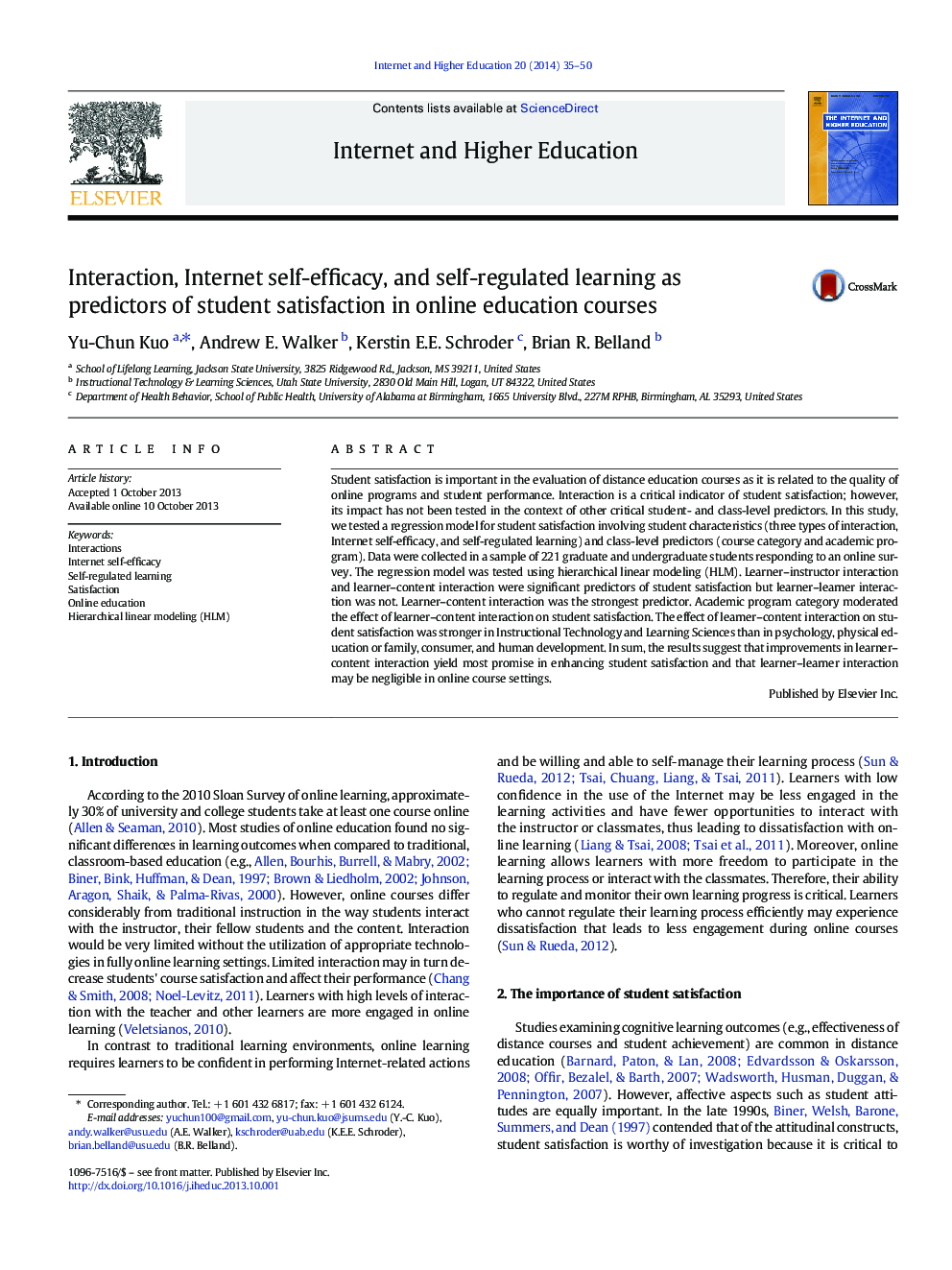| کد مقاله | کد نشریه | سال انتشار | مقاله انگلیسی | نسخه تمام متن |
|---|---|---|---|---|
| 357716 | 619944 | 2014 | 16 صفحه PDF | دانلود رایگان |
• HLM is applied to test a predictive model for student satisfaction.
• Level-1 variables include interaction, Internet self-efficacy, and self-regulation.
• Level-2 predictors include course category and program.
• Hierarchical linear modeling is utilized including level-1 and level-2 variables.
• Learner-content interaction is found to be the strongest predictor of satisfaction.
• Program moderates the effect of learner-content interaction on satisfaction.
Student satisfaction is important in the evaluation of distance education courses as it is related to the quality of online programs and student performance. Interaction is a critical indicator of student satisfaction; however, its impact has not been tested in the context of other critical student- and class-level predictors. In this study, we tested a regression model for student satisfaction involving student characteristics (three types of interaction, Internet self-efficacy, and self-regulated learning) and class-level predictors (course category and academic program). Data were collected in a sample of 221 graduate and undergraduate students responding to an online survey. The regression model was tested using hierarchical linear modeling (HLM). Learner–instructor interaction and learner–content interaction were significant predictors of student satisfaction but learner–learner interaction was not. Learner–content interaction was the strongest predictor. Academic program category moderated the effect of learner–content interaction on student satisfaction. The effect of learner–content interaction on student satisfaction was stronger in Instructional Technology and Learning Sciences than in psychology, physical education or family, consumer, and human development. In sum, the results suggest that improvements in learner–content interaction yield most promise in enhancing student satisfaction and that learner–learner interaction may be negligible in online course settings.
Journal: The Internet and Higher Education - Volume 20, January 2014, Pages 35–50
